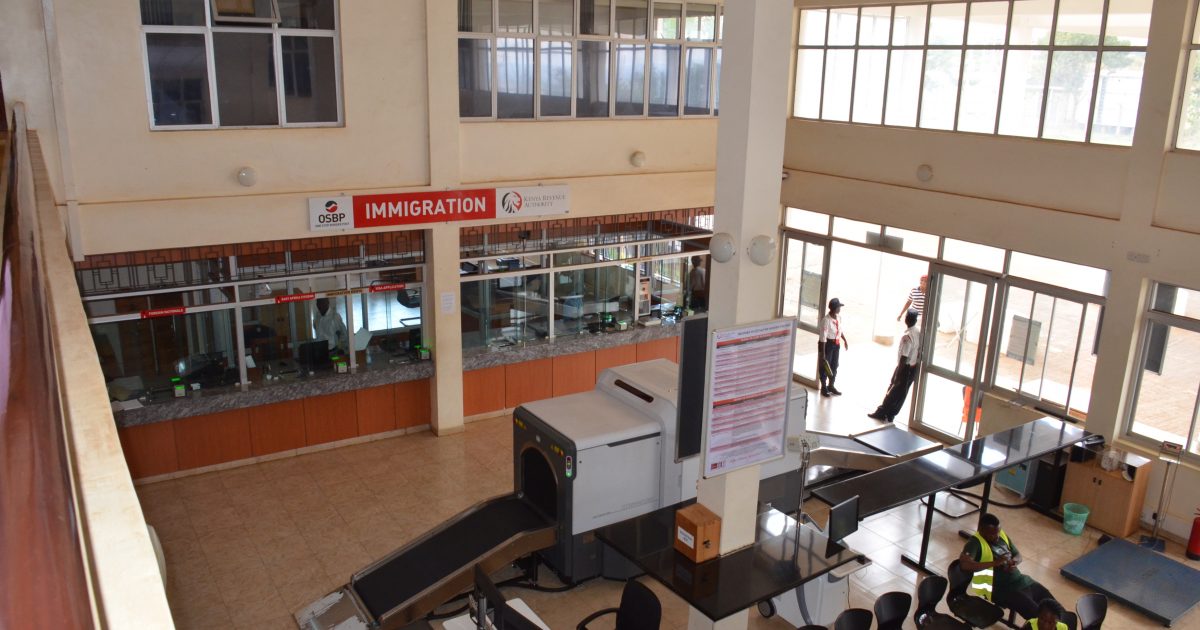For decades, authorities manning the remote Kenya-Tanzania border at Taveta sub-county have watched with mounting helplessness as crafty residents from dozens of border villages devise ingenious ways to help evade security agencies and illegally cross to Tanzania and back.
However, in a strange twist of fate, rising but muted hostilities and mutual suspicions between Kenyans and Tanzanians along the porous border borne from fears of Covid-19 cross-border transmission is ironically achieving what governments in both countries have been unable to enforce all those years; halt civilian movements across the border.
It all started with a beating, a fortnight ago.
James Kadi, (not his real name) a young Kenyan farmer and a regular border-crosser, was caned by a vigilante group at Himo area in Tanzania. His mission for crossing, though illegal, was harmless; he merely wanted to buy herbicides for his ailing tomato crop.
The vigilante group that nabbed him was not impressed. Even after explaining himself, they descended on him with canes.
“To make it worse, they even poured water on me saying intended to wash away the virus I might be carrying,” admits a fuming Kadi.
He says that since the outbreak of Coronavirus, Tanzania deployed police along the porous border to block many illegal routes used by local residents on both countries. Strangely, while Kenyans are being blocked from going across, Tanzanians farmers and traders are allegedly being allowed to cross to Kenya.
To further curb this crossing, village community security committees in Tanzania activated highly mobile vigilante groups to identify Kenyans who have evaded the police to cross to Tanzania.
It is these vigilante groups that have become a nightmare for the types of Kadi. Once caught, illegal crossers are allegedly subjected to hours-long grilling and humiliations. Some are caned but majority are doused with water and hurriedly sent back to Kenya; extremely wet and extremely furious.
“It’s not the police but youth groups who are humiliating us. They say we are risking their lives. We now lost all interest in crossing the border until further notice,” declares the farmer.
The fate of his tomato crop remains unknown. Mambo’s woes are echoed by many border residents bewildered by the sudden hostility from cross-border neighbor they always regarded as brothers.
Before Covid-19 pandemic, the interaction between Kenyans and Tanzanians at Taveta border was marked by frequent crossing to trade and engage in other social activities including common churches services, weddings and parties.
From Madarasani village in Kitobo location, Tanzania is less than a hundred meters away. A simple walk through a winding path overgrown with shrubs will take one to Tanzanian soil. For residents of Kitoghoto and Jipe, two remote villages separated from Tanzania by a swamp and Lake Jipe respectively, a canoe ride would easily take you across. Other villages where illegal crossing are common include Lesesia, Njukini and Challa.
“There has always been very tight ties between communities on both sides of the border. Apart from being related by marriage, there is also a lot of trading between the two communities,” explains Mr. Hussein Juraji, a farmer in Kitobo.
Family ties or not, the government has always viewed such unregulated movements across the border with a lot of suspicion. Fears were that criminals, contraband goods and other dangerous cargo are likely to be sneaked into Kenya through such routes.
Officially, any cross-border movement is processed at the customs offices in the One Stop Border Post along the Voi-Taveta-Holili Highway. While most large traders, passengers, tourists and government officials heeded this call, residents in those remote villages find such a requirement too taxing.
Their reasons are diverse. First, they find the distance too prohibitive. The customs office at OSBP is located over 60km away from Kitoghoto village. Tanzania, on the other hand, is just a shouting-distance away. There is also open aversion for the protracted customs’ processes and documentations that many find too tiresome.
“There is no compelling reasons to make me go all that way and endure long hours at the customs office yet I only need to buy 10kg of onions at Himo,” says a bodaboda rider who confesses to ferrying several residents to the Tanzania market and back.
Confronted with such a situation, the security agencies manning the border were mere spectators despite their best of efforts to check these cross-border movements. Apart from random patrols and putting up roadblocks on routes used by criminals to sneak stolen vehicles to Tanzania, there was little else to do to lock this 100-km stretch of bushy porous border.
The situation was made worse by perception that the authorities were party-poopers; only out to enforce unreasonable laws on cross-border movement between people who have always crossed the border at will. As a result, reporting of illegal crossing were very rare.
“They (residents) know all these paths better than us. When you mark one out, they easily avoid it and use others. What makes it even harder to stop them is they have excellent bush telegraph and alert each other whenever we are seen around,” confesses a former border patrol officer who has since been transferred to Nairobi.
That was then.
Currently, Covid-19 pandemic has triggered panic of cross-border virus spread between the communities living along the border. All feelings of love and brotherly camaraderie are at their lowest. Top are mutual mistrusts that have ensured that border communities from both countries have started policing each other over illegal crossings.
They are tracking down people crossing illegally and forcing them back to their country as quickly as possible.
“Since they started chasing us away, Kenyans are not allowing any of them to come. It is a tit-for-tat game at the border now,” says Mr. Barnabus Maimbo, a local opinion leader in Taveta.
Any Tanzanian sighted on Kenyan side of the border must explain his reasons for being in the country before being quickly escorted across the border.
“Let them stay at their country. We are not taking any chances,” says Kadi. This is the same call Tanzanians have towards Kenyans during this Covid-19 era.
Meanwhile, local authorities continue to work closely with local residents to ensure that even the reported minimal crossing are contained.
County Commissioner Rhoda Onyancha says with the Corona outbreak, any cross border movement remains a threat. She says the government officials at the grassroots level are working closely with Nyumba Kumi elders to monitor illegal movements.
Taveta Sub-County Police Commander Lawrence Marwa discloses that security agencies have established close links with local youths and riders to share intelligence and information about any illegal crossings.
“We will act on any information and ensure we have contained any illegal movements. We have asked the residents to give us tips on illegal entrants and we will get them,” he said.
The mutual hostilities are expected to last until Covid-19 is declared defeated. Then, the border communities might call for a cease-fire to repair the tattered relations. Such a détente will ultimately lead to resumption of unreported cases of illegal border crossings; much to government’s chagrin.
By Wagema Mwangi
Border Hostility deepens Over fears of Covid-19 Transmission




